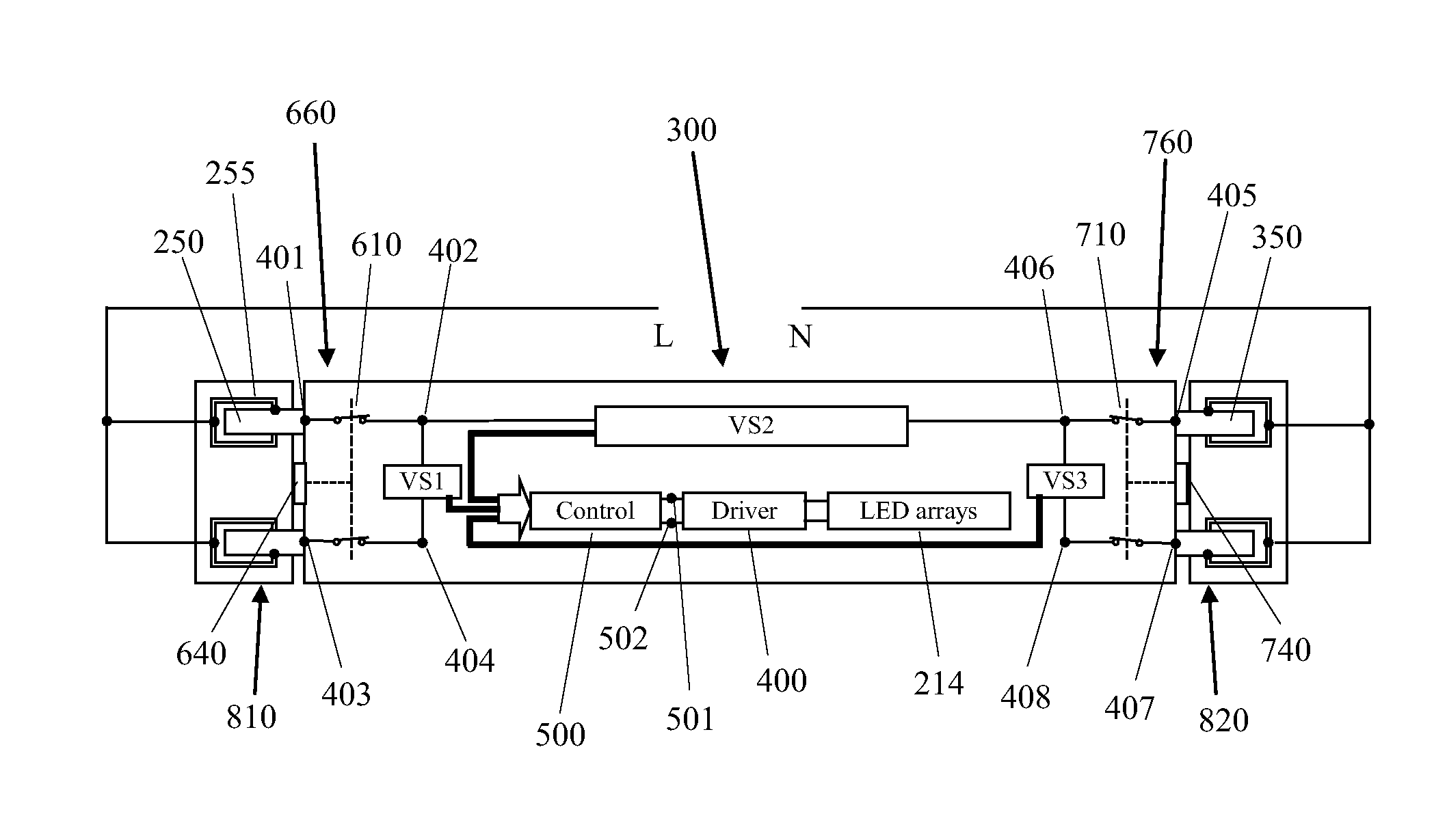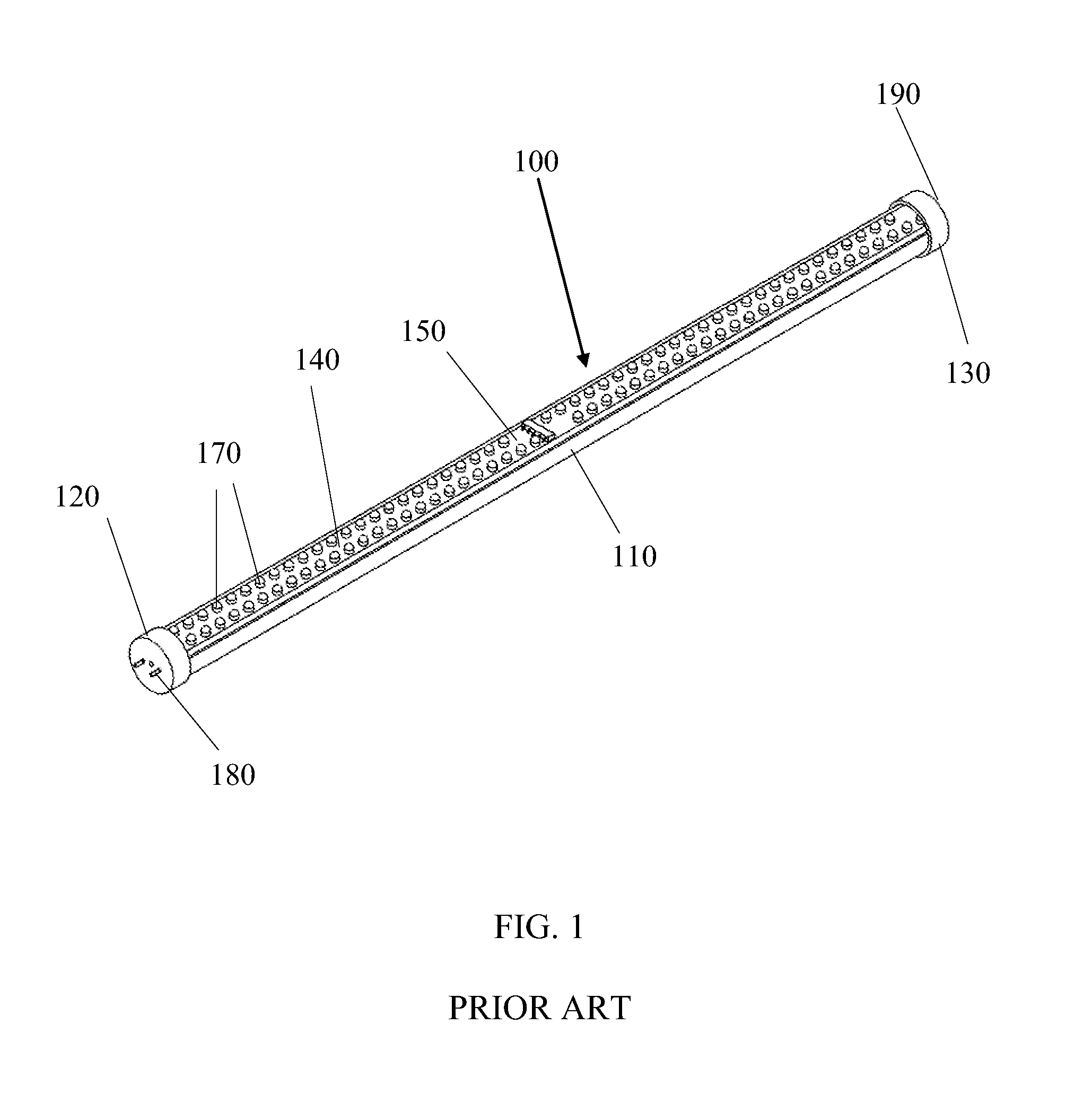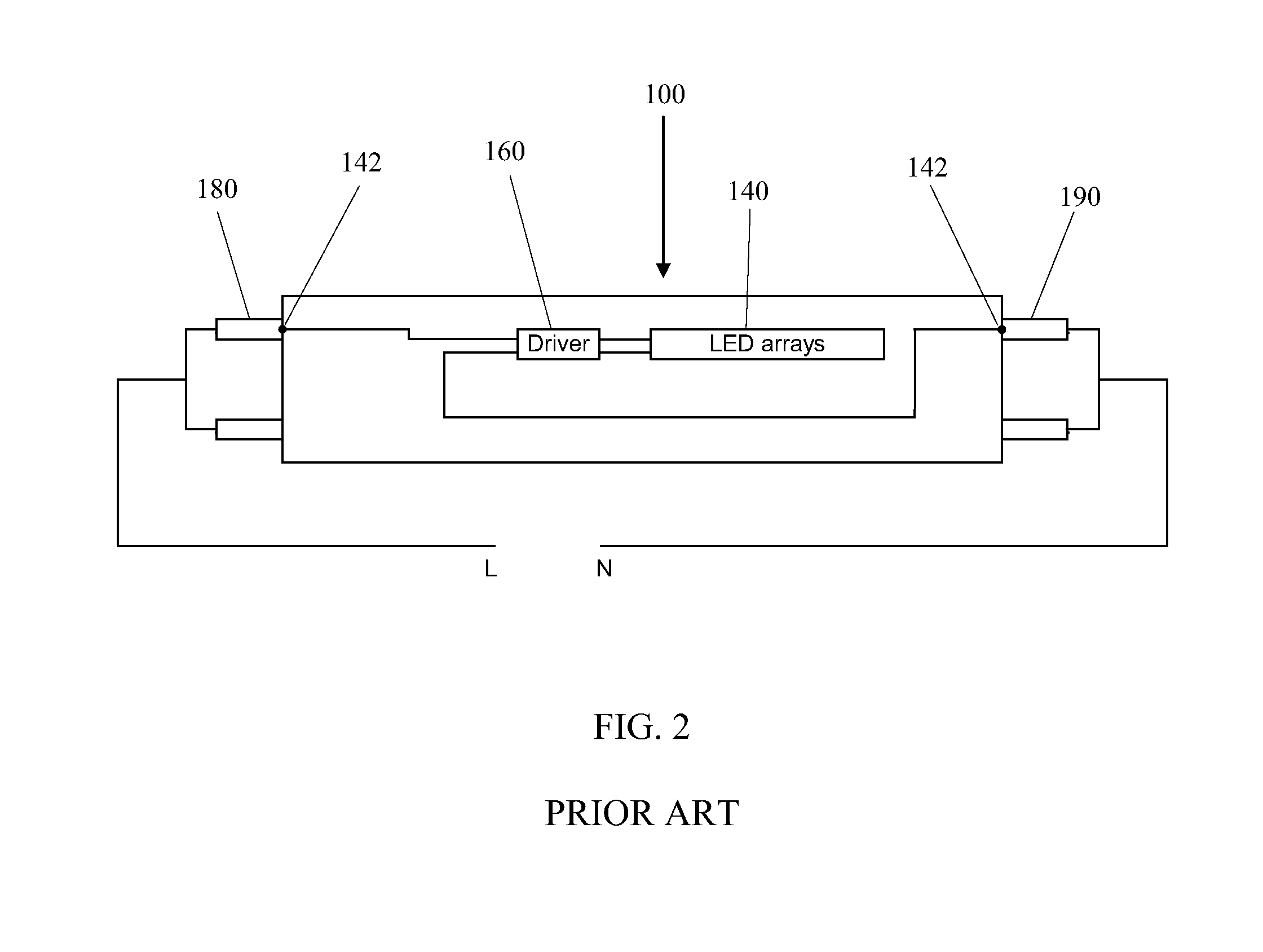Linear solid-state lighting with voltage sensing mechanism free of fire and shock hazards
- Summary
- Abstract
- Description
- Claims
- Application Information
AI Technical Summary
Benefits of technology
Problems solved by technology
Method used
Image
Examples
Embodiment Construction
[0028]Misapplications of power supply connections for LLT lamps that substitute for linear fluorescent lamps are the main causes of fire and electric shock hazards today, where the LLT lamps are incorrectly connected to a supply source, the lamp base is either inserted incorrectly into a lamp holder or inserted into a lamp holder not intended for the lamp, or a lamp is connected to lamp holders with supply connections that do not match the lamp configuration. All of these misapplications may result in fire and shock hazards.
[0029]To completely remove these hazards from LLT lamps, manufacturers need to ensure at first no electrically shorted ends in either single-ended or double-ended LLT lamps. For double-ended LLT lamps, double protection switches on both ends of the LLT lamps must be used without compromise. For single-ended LLT lamps, consumers may find them difficult to use because there is a chance that the LLT lamps cannot be lighted up after installation due to the fact that ...
PUM
 Login to View More
Login to View More Abstract
Description
Claims
Application Information
 Login to View More
Login to View More - R&D
- Intellectual Property
- Life Sciences
- Materials
- Tech Scout
- Unparalleled Data Quality
- Higher Quality Content
- 60% Fewer Hallucinations
Browse by: Latest US Patents, China's latest patents, Technical Efficacy Thesaurus, Application Domain, Technology Topic, Popular Technical Reports.
© 2025 PatSnap. All rights reserved.Legal|Privacy policy|Modern Slavery Act Transparency Statement|Sitemap|About US| Contact US: help@patsnap.com



